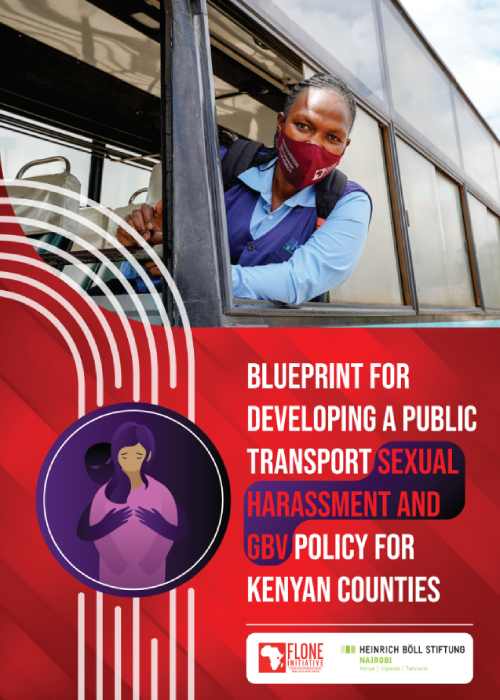1.1 Background
Research conducted by the Flone Initiative highlights sexual harassment as a significant barrier to achieving a safe and inclusive public transport system in Kenya, affecting women both as commuters and workers. Sexual harassment in public spaces violates human rights and is recognized as a criminal offense under the Sexual Offenses Act of 2006. Despite this, such incidents are so prevalent that they have become normalized.
The County Government of Machakos Draft Gender Policy (2021) noted a rise in sexual and gender-based violence within Machakos County. A Baseline Report by Flone Initiative (2021) found that 46% of women workers in the transport sector had experienced sexual harassment at work, primarily through inappropriate physical contact, with most incidents going unreported due to a lack of clear complaint mechanisms.
The Machakos Draft Gender Policy (2021) identified several key barriers to addressing gender-based violence in the transport sector: (a) a low understanding of gender concepts leading to negative social attitudes that foster sexual harassment, (b) a lack of knowledge about sexual harassment laws, legal rights, and individual responsibilities in combating such harassment, and (c) insufficient and inconsistent coordination of prevention and response programs and their implementation.
1.2 Policy Objective
In 2021, the Flone Initiative partnered with the Machakos County Government to develop a Public Transport Sexual Harassment and Gender-Based Violence Policy. This policy aims to address the challenges of sexual harassment in public transport by guiding the identification, prevention, and response to such incidents within public transport systems and associated spaces. Additionally, the policy outlines procedures for duty-bearers to handle claims, address incidents, and support survivors in their recovery.
1.3 Purpose of the Blueprint
The policy has been approved, launched, disseminated, and is currently being implemented. Building on this success, the Flone Initiative aims to expand this intervention across the country. Therefore, this Blueprint documents the best practices and lessons learned for other counties to use in developing similar or related policies.
1.4 Methodology
A qualitative case study approach was used to document the Blueprint, utilizing both secondary and primary data. Secondary data was reviewed from relevant documents, including the policy itself, the Memorandum of Understanding (MOU), and project reports. Data was also collected through key informant interviews with stakeholders involved at various stages of the policy development. The data was triangulated using responses from different interviewees.

